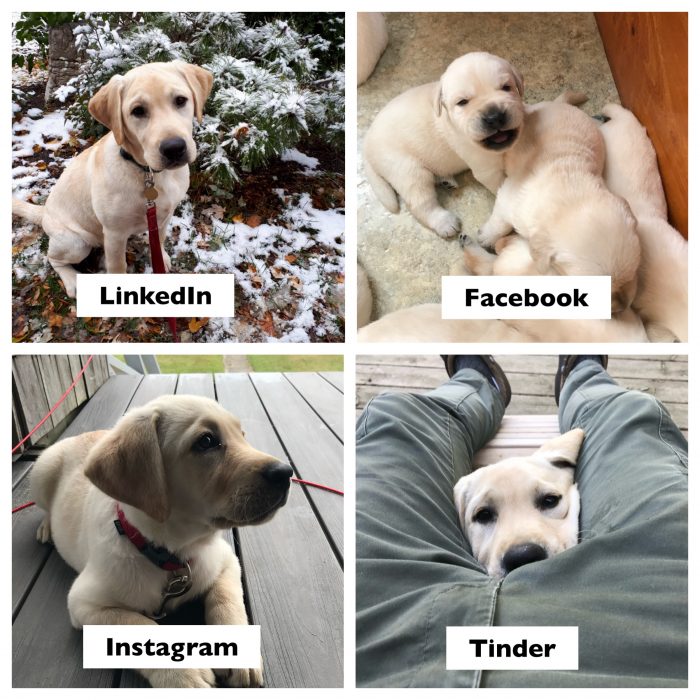#TBT: yes, I have always been into shit-disturbing
#TBT: that time I ran for the Tory leadership to (a) raise student issues and (b) be a pain in the ass. (RIP my old pal Muretich.) pic.twitter.com/nHzTIzIiZW
— Warren Kinsella (@kinsellawarren) January 30, 2020
Bell Let’s Talk Twitter thread: the response
My tweeted thread on the Bell Let’s Talk day got a big response. The thread is here.
Below is a sampling of some of the comments I received, with names and identifying information removed. I was blown away by what came back at me.
There are many, many people in pain out there. But their courage and honesty and determination to move forward is simply incredible.
(And, to those who said I was brave, I respectfully disagree. I just said the truth – my truth, I guess. It was easy to do. The really brave people are the ones still out there, struggling with mental health challenges all on their own. If you need help, or just want to talk, DM me on Twitter anytime. I’m not a professional, but I will do what I can.)
-
Thank you Warren. A while back, over the holidays, you tweeted that if we needed someone to talk to, we could DM you. Just wanted to say thank you for that. While I havent reached out, that tweet helped more than you will ever know.
-
Thanks @kinsellawarren for sharing. It’s not easy admitting you’re vulnerable and not invincible.
-
Powerful thread here. Brought tears to my eyes, I’ve been hiding in silence and it isn’t working. Step 3 says no drinking but let’s have a beer some time.
-
There are times the thing @kinsellawarren writes can make me stabby [sic]. Not this time. Open, honest, even a little bit raw, but it might just help someone out there and is worth the read.
-
Everything this guy has shared is so true and so normal and so common. Please pay attention to @kinsellawarren. When my Mom was 60, she tried to kill herself. It was a long (talking) road back for her & me. But she made it!
-
Warren, you need to know how much this is helping so many people right now, including myself. You are a good man.
-
Thanks for sharing your story. We admire your courage.
-
A beautiful honest post, thanks for sharing many will take comfort in your words.
-
Glad you mentioned diet, exercise, sleep, etc. FWIW, my psychiatrist wife and I did a book on those and other concrete steps to take, especially if (at least at first) you aren’t getting the help you ask for mhnav.com/book/
-
Thanks for sharing. I’m finding more and more we all have our devils to fight and deal with. Some more successful than others. Showing a little real empathy towards others goes a long way towards dealing with them. But sometimes we need Professional help.
-
Such great advice, broken down in manageable sips. Thank you for sharing. We can kick thru darkness…. with support, using our own strength, and by attending to our own wellness.
-
Thanks for sharing your “Let’s Talk” tale. That’s very brave. Let me add that no one needs to share their issues on social media. Ask your family doctor to recommend a qualified mental health professional to guide you through your trauma.
-
I felt seen. I’d been there, different (personal) darkness… but there. It’s raw and powerful when someone shares the story. It can hurt to share, but if it helps just one person to know they aren’t alone in what they’re feeling, it worked.
-
I am #Sick not Weak. People like you inspire me everyday to never give in to this Thank you SO Much Tears writing this, happy and relief ones not sad ones.
-
Well said. Sleep is such an important to make sure you have enough of! So many great tips! Thank you and take good care of yourself.
-
Warren I’ve had plenty of demons in my time, some of which I still can’t talk about, so from the bottom of my heart, thank you for sharing your struggle and your story.
-
Your 5 points are excellent ones. The 4th resonates strongest with me. GEM. Gratefullness, Empathy, Meditation. For me, prayer and praise is most of my meditation. I go to church BECAUSE I’m not perfect… rationally I don’t agree 100%, but personally.
-
I struggled with depression for 3 years. I really found out who my friends were. I am also here if you need a friend!
-
It isn’t easy to make oneself so vulnerable Warren. Thank you, from me and many others, that I am certain. I was diagnosed with PTSD (which surprised me at the time). I had watched my youngest son die after becoming ill…
-
You’re undoubtedly making a difference for many people out there suffering. They now have a plan in hand and a renewed hope.
Let’s talk? Okay. Let’s. (updated)
Thread below.
So. #BellLetsTalk day. So, let's talk.
— Warren Kinsella (@kinsellawarren) January 29, 2020
UPDATE: And here’s the interview I did for today with my brother Mark Henick, who knows a thing or two about this stuff.
I’m sure it’s a coincidence and has nothing to do with that virus
Hand sanitizer stuff in Toronto: kind of hard to find today. pic.twitter.com/pInU7pZKWW
— Warren Kinsella (@kinsellawarren) January 27, 2020
Meanwhile, at another drug store… pic.twitter.com/D2ZoM9VEhK
— Warren Kinsella (@kinsellawarren) January 27, 2020
KINSELLACAST 92: Adler, Mraz & Kinsella on prejudice and fear
The racist face of disease
[I literally forgot I wrote this for Maclean’s during SARS, many years ago. A watchful reader posted it on Twitter, so here it is again.]
THE MORNING SUBWAY is usually jammed with bodies. Dozens of Toronto commuters stand wherever they can find a few inches of space, swaying as the train heads south. Seats are hard to come by during rush hour on the Yonge Street line—but not today. In a subway car packed to the doors, there are more than a few places to sit. And all of the empty seats are beside people of Asian descent. An explanation of sorts is found in a tabloid headline, on display for all to see: “FOURTH SARS DEATH IN GTA.”
The unspoken calculus is simple. SARS originated in the Far East; most of those afflicted with it, to date, have been Asian. Ipso facto, empty seats on the crowded subway; once-bustling Chinese restaurants virtually deserted; trips to Chinatown avoided or put off.
Welcome to the SARS Spring of 2003: in Toronto—as in British Columbia, Alberta, Saskatchewan and New Brunswick, where confirmed or suspected SARS cases have been reported—Canadians seem less preoccupied with faraway Iraq, and more with the affliction bearing the name severe acute respiratory syndrome. “To Canadians, it feels like a dangerous, uncertain time,” says John Wright, senior vice-president of the Ipsos-Reid polling firm. “There is a deep anxiety. When there is a great unknown, like SARS, you will always see great anxiety.”
By now, most of us have read and retained the relevant SARS facts. Over 2,000 cases identified in more than a dozen countries. More than 80 deaths, with China and neighbouring countries hit the worst. Seven SARS deaths in Canada. The Italian doctor who first warned the world about SARS was, chillingly, killed by it. And, as documented in every Canadian newspaper and broadcast, the disease arrived with people who had been in Asia.
Of the little we know about SARS, it is known that it will make anyone sick, given the chance. It does not discriminate. Unfortunately, people do. In recent days, SARS has made life more complicated for Canadians of Asian descent. It is seen in the discreet shunning of people of Asian descent on subway cars, in airport lounges and hospital waiting rooms.
Says Cynthia Pay, president of the Chinese Canadian National Council: “Broader society is scapegoating this as a Chinese disease—and within the Chinese community itself, people are afraid. It’s making Chinese Canadians feel very vulnerable, that they’re not in the mainstream.”
SARS is manifesting itself on the unpleasant fringes of Canadian society, too. The Freedom Site is the principal Internet home for neo-Nazis and white supremacists in Canada. It attracts thousands of cybervisitors every day, drawn by its nauseating menu of Holocaust denial, anti-Semitism, homophobia and intolerance. Operated by a supporter of the pro-Nazi Heritage Front, the Freedom Site has seized upon SARS with a vengeance, pointing to the disease as justification for its anti-immigrant polemics.
In one recent posting, a far-right leader calls SARS “another pernicious Oriental import.” He writes: “Remember next time you’re sitting in an airplane, riding a bus or huddling scrunched in a Toronto subway car and find some Oriental horking or hacking near you. IMMIGRATION CAN KILL YOU!” The white supremacist then goes on to demand “monitoring” of Asian travellers to Canada.
The same tone is being adopted elsewhere. On the largest far-right Web site, the U.S.based Stormfront, a female Canadian skinhead enthusiast writes: “[Close] our borders! This wouldn’t have happened if border security was stronger, and it wouldn’t have happened if there were immigration laws that affected more than whites!”
Fanning prejudice with fears about epidemics is nothing new: disease and discrimination have worked in tandem throughout human history. For centuries, occurrences of leprosy, plague and syphilis have been manipulated to legitimize expressions of hatred against a given society’s favoured victims of the moment. Following their rise to power in Germany, for example, Adolf Hitler and his Nazi party aggressively promoted what they called “racial hygiene.”
A by-product of the eugenics movement, racial hygiene was a pseudo-science that identified and studied biological factors the Nazis felt were potential threats to the purity of the Aryan “race.” Under Hitler’s 1933 eugenics law, thousands of men, women and children were forcibly sterilized (or murdered) because they suffered from schizophrenia, manic-depressive psychoses, epilepsy, Huntington’s disease, blindness, deafness, severe physical deformity, even alcoholism.
The Nazis are largely gone, but the racialprofiling impulse is not. Most recently, gays have been stigmatized due to the AIDS virus, with their access to jobs, benefits and international travel limited. Says pollster Wright: “The perception is that SARS is contained to one group of people. It should be remembered that pathogens know no race or creed.”
Will that fact be recognized? Wright doesn’t know for certain, yet: his firm was awaiting the results of its first poll on SARS.
But one thing is beyond dispute: as we make our way onto the subway or bus tomorrow morning, we should know that SARS is more than a test of our science: it is also, increasingly, a test of our values as a people.
Author and lawyer Warren Kinsella writes often about hate. To respond: letters@macleans.ca
Joey takes the Dolly Parton challenge

High school buddy speaks out
One of my oldest and best friends, Rockin' Al, to me on the phone tonight: "People still say to me: 'You know Warren Kinsella?' And I say, yes, Warren Kinsella taught me how to spit, how to swear, and how to spend money." #Pride
— Warren Kinsella (@kinsellawarren) January 25, 2020
#TBT: ten years ago! Tommy Stinson! The Mats! Me!
…it was ten years ago tonight, Facebook tells me.
That is me, beside the Replacements’ (and Guns and Roses’) Tommy Stinson. THE Tommy Stinson.
He came with his girlfriend to an SFH gig at the Bovine Sex Club on Queen West, and he decided he would start selling our merch for us. So he did!
What a night. I love punk rock.


